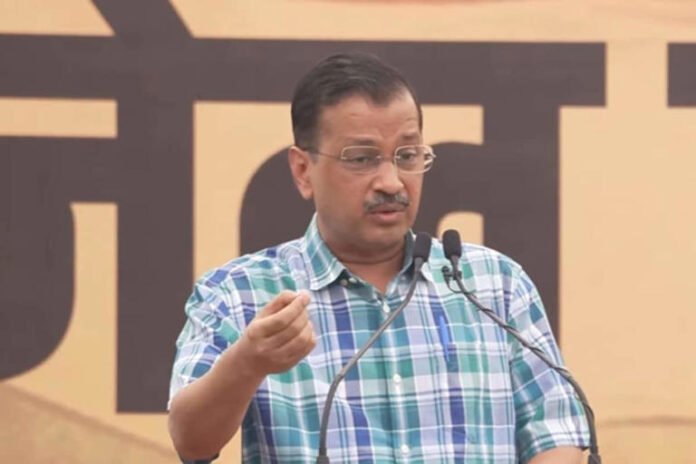Delhi Chief Minister Arvind Kejriwal finds himself entangled in legal woes as a Delhi court reserves its order in his bail plea, leaving the embattled leader in a state of uncertainty. The development comes amidst a backdrop of political turmoil and legal battles, adding further complexity to Kejriwal’s already tumultuous tenure.
The case against Kejriwal stems from allegations of defamation filed by a political opponent, accusing the Chief Minister of making defamatory statements during an election campaign. The accusations, which Kejriwal vehemently denies, have become a focal point of contention, highlighting the fraught relationship between political adversaries in the Indian political landscape.
The Delhi court’s decision to reserve its order in Kejriwal’s bail plea prolongs the legal saga surrounding the Chief Minister, leaving him in a precarious position. While Kejriwal maintains his innocence and asserts his right to freedom of speech, the legal proceedings threaten to overshadow his governance agenda and cast a shadow over his political future.
The timing of the court’s decision is particularly significant, as it comes at a time when Kejriwal’s Aam Aadmi Party (AAP) is gearing up for crucial elections and facing mounting pressure from opposition parties. The outcome of the bail plea could have far-reaching implications for Kejriwal and his party, shaping the narrative around their commitment to transparency and accountability.
The legal battle facing Kejriwal is not an isolated incident but rather part of a broader pattern of political polarization and legal vendettas in India’s democracy. In recent years, several politicians and public figures have been embroiled in defamation cases, often stemming from contentious statements made during election campaigns or public rallies. The weaponization of defamation laws for political gain undermines the principles of free speech and democratic discourse, stifling dissent and perpetuating a culture of fear and intimidation.
For Kejriwal, the legal proceedings represent a test of his leadership and integrity, as well as his ability to navigate the treacherous waters of Indian politics. The Chief Minister, known for his anti-corruption stance and commitment to good governance, must now confront allegations of wrongdoing and defend his reputation in the court of law.
The outcome of Kejriwal’s bail plea is eagerly awaited by supporters and detractors alike, with both camps closely monitoring developments and preparing for the potential ramifications. A favorable ruling could bolster Kejriwal’s standing and galvanize his base ahead of crucial electoral battles, while an adverse decision could deal a severe blow to his credibility and political ambitions.
Regardless of the court’s verdict, Kejriwal’s legal troubles serve as a cautionary tale for politicians and public figures in India, highlighting the perils of political mudslinging and the need for greater civility and accountability in public discourse. The weaponization of defamation laws and the use of legal means to settle political scores undermine the democratic principles of transparency, accountability, and freedom of expression, eroding public trust in the political process and fostering a climate of cynicism and disillusionment.
As the Delhi court deliberates on Kejriwal’s bail plea, the Chief Minister remains hopeful that justice will prevail and that he will be exonerated of all charges. However, the legal battle is far from over, and Kejriwal must steel himself for the challenges that lie ahead. In the meantime, his supporters continue to rally behind him, expressing solidarity and unwavering belief in his innocence.
In addition, Arvind Kejriwal’s bail plea represents a critical juncture in his political career, with far-reaching implications for his personal and professional life. The outcome of the legal proceedings will shape the narrative around his leadership and integrity, defining his legacy in the annals of Indian politics. As the Delhi court reserves its order, Kejriwal remains in limbo, awaiting a verdict that could determine his fate and reshape the political landscape of the nation’s capital.

